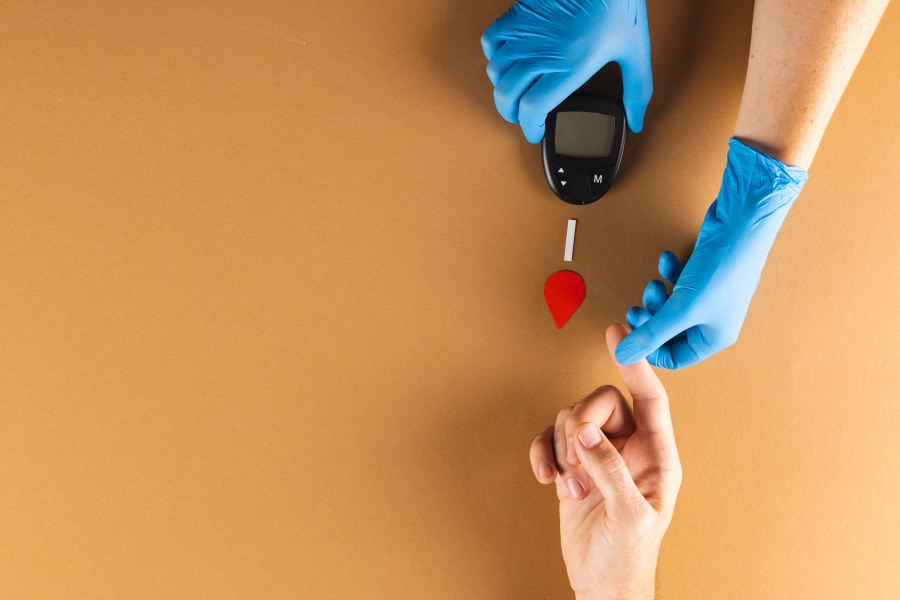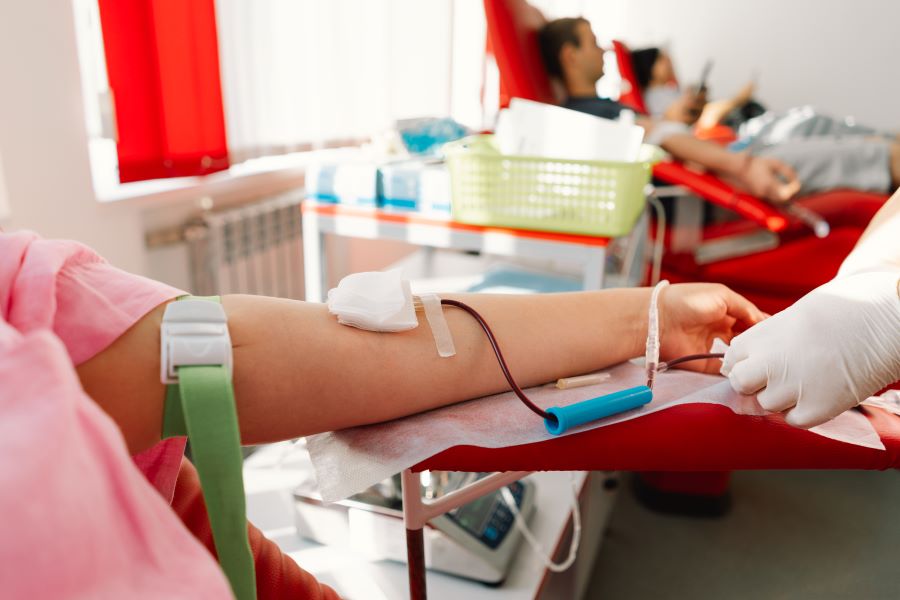Can You Donate Blood if You Have Diabetes?

You can donate blood if you have diabetes, but your condition must be well-managed. While blood donation is helpful for both donors and recipients, everyone should be mindful of specific aspects related to the entire process. However, there are certain things that diabetics should take note of before donating blood.
Good preparations and post-donation care are also vital in guaranteeing a successful and healthy donation process. Scroll through if you have the same query to find out all the different aspects related to this.

Table of Contents

Can a Diabetic Person Donate Blood?
It is generally safe for someone with diabetes to donate blood. To be precise, individuals with type 1 and type 2 diabetes are eligible for donating blood. Having mentioned that, individuals wondering ‘can a diabetic patient donate blood?’ should note that donors need to have their medical condition under control and stay in good health before the donation.
Having diabetes under control implies that individuals must maintain a healthy blood sugar level. This requires diabetics to stay vigilant about their condition on a day to day basis.
Living a healthy lifestyle with a properly balanced diet and regular exercise contributes towards keeping blood sugar levels in a healthy range.
Now you know that you can donate blood even if you have diabetes, move on to the next section to learn how to prepare for it.
What Should Diabetic Patients Do Before Donating Blood?

Before donating blood, it is imperative to prepare for the donation so that the entire process goes smoothly. Individuals wondering whether a diabetic patient can donate blood in India must:
- Ensure to get eight or more hours of sleep on the night before the donation.
- Avoid fasting for blood donation. Some individuals can feel giddy, so it is imperative to have a proper meal and avoid going for the donation on an empty stomach.
- Bring a list of all medications they are currently taking.
- Limit caffeine consumption on the day of blood donation.
- Consume balanced meals before and after the donation. This keeps blood glucose levels low and helps control the condition.
- Drink adequate amounts of water before the donation. They must increase their water intake a few days before the scheduled donation.
- Consume iron-rich foods or take an iron supplement one to two weeks before donating blood.
What Should Diabetic Patients Do After Donating Blood?
Diabetics searching for “can you donate blood if you have diabetes” must monitor their blood sugar level and continue to consume a healthy diet after blood donation.
Some individuals with Type 1 diabetes report mildly elevated blood glucose levels 3 to 5 days after blood donation. The immediate blood glucose levels do not spike or drop because of donation, but donating blood may cause A1C or HbA1c to be lowered falsely. This happens because of accelerated RBC turnover and blood loss.
Diabetic patients must ensure to add food or supplements rich in iron to their diet for 24 weeks following the donation.
Besides this, individuals with the search query “can diabetics donate blood” must do the following things in general after blood donation:
- Take acetaminophen if the arm feels sore.
- Keep the bandage on for a minimum of four hours so as to prevent bruising.
- Rest if they feel lightheaded.
- Avoid strenuous activity, including exercise and other rigorous tasks, for 24 hours after donating blood.
- Increase the fluid intake for some days following the blood donation.
Apart from all these, donors must ensure to get in touch with a doctor if they feel sick after donating blood.
Side Effects of Diabetics Donating Blood

Diabetics who donate blood can have harmful effects on both the donor and recipient before, during, and after the process. People must comprehend these potential side effects to ensure the safe donation of blood.
What is the Impact of Diabetes on Blood Donation?
Diabetes can affect a person's ability to donate blood, depending on various factors like blood sugar control and medication use. While many diabetics can donate safely, certain conditions and complications might prevent them from doing so. Understanding these factors is essential for diabetic patients considering blood donation:
1. Blood Sugar Control
Maintaining stable blood sugar levels is crucial for diabetic patients who wish to donate blood. If a patient's blood sugar is uncontrolled, they may be deferred from donating to ensure their health and blood supply safety.
2. Use of Insulin
Diabetic patients dependent on insulin can face restrictions when donating blood. Some blood donation centers may disallow insulin diabetics from donating due to potential risks associated with their condition and medication.
3. Complications of Diabetes
Diabetes-related complications, such as neuropathy or cardiovascular issues, can also impact a patient’s eligibility to donate blood.
What Factors Can Prevent a Diabetic Patient from Donating Blood?
Certain factors can prevent a diabetic patient from donating blood, such as uncontrolled blood sugar levels or complications from diabetes. Illustrated below are some factors that can prevent a diabetic from donating blood:
Individuals wondering, ‘Can diabetics donate blood?’ now know all the details regarding this matter. Having said that, they should always consult a doctor if they experience unusual symptoms after blood donation. These come about with adequate preparation and awareness by those who have type 2 diabetes and want to donate blood.
Protect What Matters - Explore Other Insurance Options














